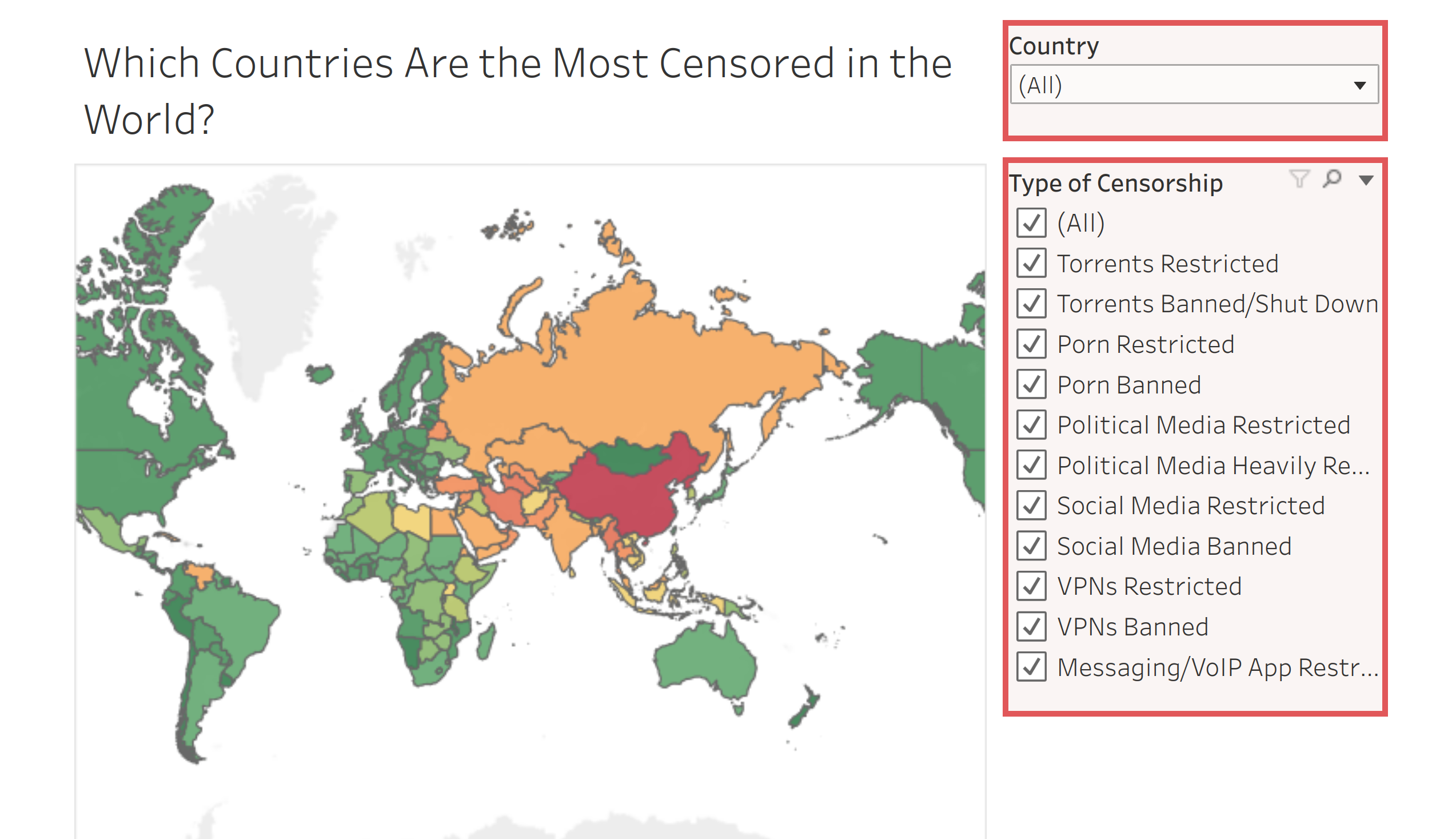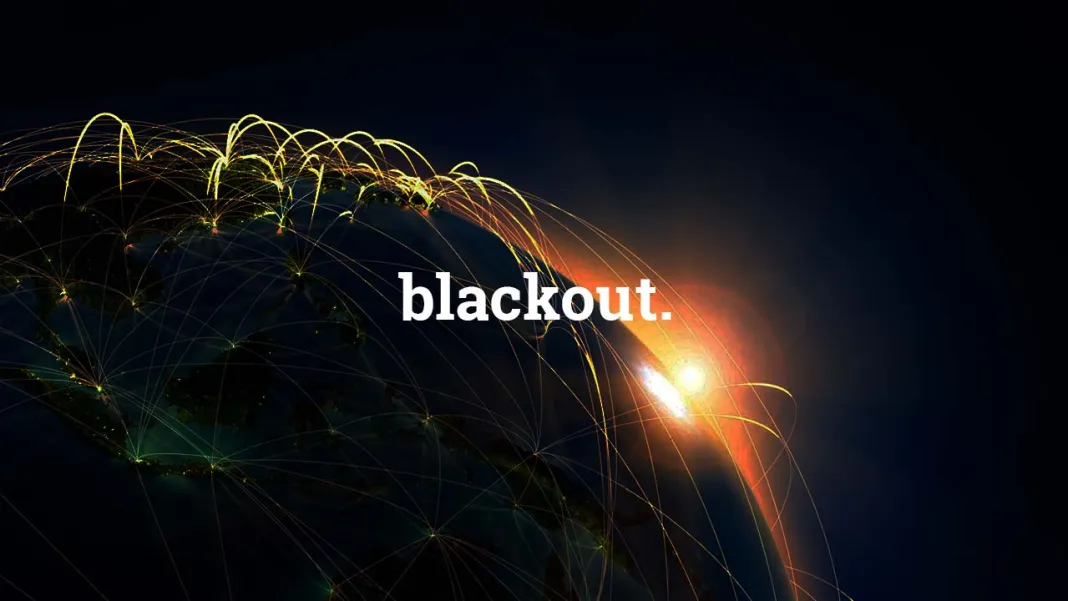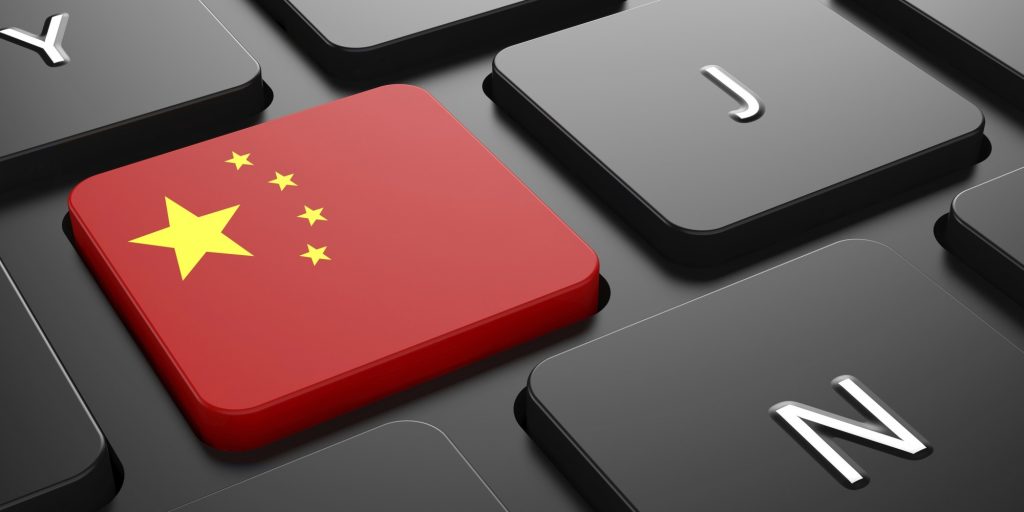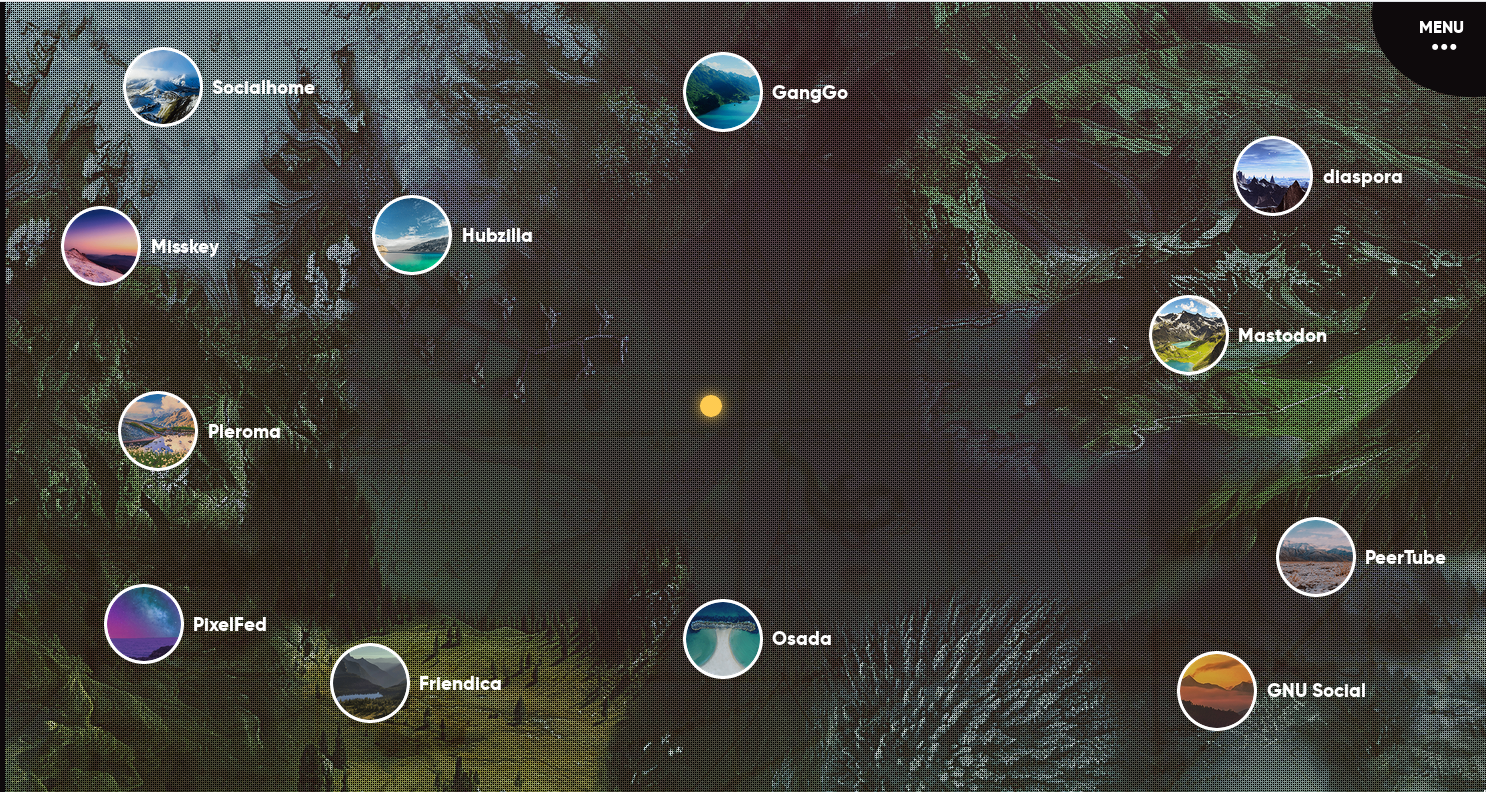The Open Web is dying
We might be the last generation to enjoy an open, inter-operable web. From big tech lockdown and monopolies to internet filtering and alternative webs, the open internet is in danger
We might be the last generation to be able to enjoy a nice unified, open, worldwide internet. With centralization of services by giant tech companies, the control they start to exert over what you see first, or at all, through browser engines or algorithms, and the moves various countries make to limit what their citizens can or can’t see, it’s inevitable that in the near future, the internet won’t be inter-operable or even open at all.
Let’s look at the various threats the open web is facing, and, as always, you can enjoy a video version of this article, right here:
Centralization
The first big thing that’s killing the open internet is centralization and lockdown by big companies
Big tech companies like Apple, Google, or Microsoft are making all efforts to ensure that their users stick to their online services and products, and this ends up dictating what parts of the internet you end up accessing or not.

Using a specific web browser means you’re using a specific engine, which dictates what you can or can’t do online. Safari on iOS doesn’t support all modern features of web apps. Google Chrome and their Blink engine limits what adblocking or tracker blocking capabilities you can have. They’re restricting your internet experience. And the almost complete browser engine monopoly of Blink means that Google also gets to decide what will be added to the web, and what won’t: if they don’t like it, they won’t support it, and no developer will end up using it: what’s the point of developing something 80% of users won’t be able to use?
But it’s not just browsers, it’s also the phones or the phone OS they make, which have their own limited app stores that dictate what you can or can’t install or do on your own device.

It’s also the search engines from these companies that will dictate which websites surface, and which don’t, whether you’re using Google, Bing, Yandex or Baidu, every single one of them will prioritize certain websites and content over others, often making their own services first and foremost.
The algorithms from the platforms you use, like Youtube for video (yes I’m aware that it’s ironic there’s a Youtube video embedded in this article. All the more reasons to subscribe: don’t let an algorithm decide what you see!), Facebook, or Twitter will define what content you see, and what content you don’t, and thus limit your internet experience as well.
It’s really easy to fall into a comfortable bubble of services and content provided by a single company. If you live exclusively in the Google ecosystem, you have a Google vision of the internet that’s not the full open web. It’s filtered by what Google thinks it can put ads in, what it thinks you might like, and what other users liked, all in the goal of making you stick around in their services to show you more ads. This is inherently biased, whether it’s Google, Microsoft, Apple, TikTok, or anyone else doing it.
Even worse, some people basically only access the internet through ONE app, Facebook, Twitter, or a chat application like WeChat. It’s their entire portal to anything they’ll read, play, write, or do. This “everything app” vision is insanely scary and stupid and it’s something I’ll discuss in another video.
And then you have the lack of inter-operability, like being unable to talk to people on Twitter if you only have a Facebook account, or iMessage not working with regular normal SMS or RCS, limiting the features and the way you can talk to people, or just the data being unusable in another service even if you export it.
It might seem obvious today, like “duh of course Facebook doesn’t interact with Twitter, they’re not from the same company”, but that’s not how the internet used to work. It used to be built on open protocols. Chat apps for example, used to be able to communicate with each other fine, regardless of who developed it, or on whose network you were.
Suffices to say that the bigger these companies get, the more they artificially limit what you access on the internet. They don’t prevent you from accessing it, but you still probably won’t, because the algorithm will not surface it, and you’ll forget you can look in other places.
Internet Filtering

But all this “big tech” stuff, you can still bypass yourself. It’s not that hard to replace all Google services with something else. More concerning is what countries do to limit what you can and can’t access. Since people use the internet to exchange data between each other, or with other countries, they also use the internet to bypass certain limitations that countries try to impose on information.
So these countries implement various filters that are basically censorship. Some of it is totally acceptable, like blocking access to illegal material, like child pornography or terrorist content, and some of it is more questionable, like blocking websites that reference various copyrighted materials, like torrent sites.
The torrent is illegal, the site that links to the torrent? Not so much. Blocking it is basically like blocking wikipedia because an article has the chemical formula for making explosives. Sure, it lets you do something illegal, but the website itself isn’t
On top of that, countries order various companies to remove content, like India ordering the removal of a lot of Chinese apps from various app stores, or blocking various IPs, including the website for VLC, because they couldn’t understand the difference between VLC, the official application, and people distributing infected copies of VLC, illegally.
You also have Russia, ordering companies like Google or Microsoft to remove certain links and websites from their search results, so no one in Russia can access them anymore. This is limiting access to the free and open web: you don’t get the full connected web, you get a subset of it.
Companies who refuse can be banned in these countries, so they generally comply if they want to stay in business there, but that’s not enough: it depends on the willingness of the company to comply, and the strength of the country to be able to actually ban the company if they don’t comply.
Banning Google entirely is not easy. You’re depriving your citizens of a lot of services. And a lot of spyware. Think of the children’s data, who’s going to collect it now?
But it’s not just authoritarian governments that do it. In the EU, for example, France has blocked various media websites and TV channels linked to Russia after the war in Ukraine, whether they clearly were fake news and Russian propaganda, or just reporting on what Russia was saying without necessarily endorsing their point of view.
France also at some point had a law that would ban a user from even having an internet connection if they were caught downloading pirated content 3 times. Fortunately they never applied these sanctions, but it still let them implement a nice mass surveillance network in the name of protecting copyright holders. And once the capability is built, it’s easy to abuse it to remove stuff the government might not like.
All these filters make the internet less open: you can’t freely access what you’re looking for if your country decides it’s not allowed. And that’s not at all what the internet is about
Blackouts

When filters aren’t enough, countries now implement full internet blackouts, generally to deal with protests against the government’s actions.
In 2020, 268 million people had their internet access shut down, that’s 49% more than in 2019. India did it in Kashmir for almost a full year, because they decided that this region should not be autonomous anymore and they didn’t want any protests to be able to organize themselves.
While these blackouts are selective, and can still let governments access the internet themselves while the general public can’t, they’re devastating for a country’s economy and business, and they can’t be maintained for very long periods of time, so they’re generally only used by totalitarian regimes that want to either shut down any protest, or hide crimes they commit against their own population.
They’re obviously against the open internet, against free communication between people, and these blackouts are literally killing the internet.
China: the ultimate “other internet”

Now, the ultimate candidate against the open web is what China has built. They might be linked to the general internet everybody else enjoys, but it’s a one way street: people can access their websites, but Chinese people can’t access most of the rest of the internet, being limited to what the Chinese government allows.
China has built their own entire alternative internet, with their own services and their own websites, and it’s not for nothing that we’re talking about the great firewall of china, because when you’re in there, you can’t access anything the government has deemed “not ok”.
It only took China 3 years after they connected to the general internet in 1994 to realize that it would be a grave mistake to let their citizens have access to information sources that wouldn’t paint their country in a very flattering light.
VPNs still work, but they’re not insanely convenient or fast to use, since China probably does NOT allow them to have servers in the country, so just connecting to the VPN itself will probably double your loading times.
Various western companies aren’t allowed anymore, like Facebook or Twitter, and the ones who want to stay have to comply with that censorship. Apple, or Microsoft do it for example, accepting to censor what users can or can’t do, or applying software updates that limit the sharing of information, like what Apple did with AirDrop.
So, in China, the open web doesn’t even exist at all. They have a completely controlled dystopian nightmare of an internet, where the government has access to all of your data, and you have access to a subset of stuff that will make you live in a bubble
A lot of totalitarian countries want to do the same, and China is happy to oblige, even providing some developing countries with all the infrastructure needed, like towers, routers and connectivity equipment, plus all the software needed to monitor and limit what people can access.
With China’s internet being so successful at curtailing protests and “undesirable” information, it’s no wonder other countries would be willing to follow suit, except that fortunately, they’ll need to build their own national companies to replace everything they block, which is going to be a tall order for any country that doesn’t have the same size and population as China.
Signs of healing

Of course, it’s not all doom and gloom. The internet is showing signs of healing, at least on certain fronts. First, decentralized services are emerging again, slowly offering alternatives to the big closed down networks. Mastodon for example is a success story of a federated, decentralized network offering a viable alternative to Twitter, and that can talk to a variety of other services, like Pixelfed, Wordpress, PeerTube, Castopod, and the like.
All of these combined are still extremely small compared to even Twitter, but Mastodon is still succeeding financially and is generally a very, very good experience.
Various laws are also being passed, forcing big tech companies to relinquish a bit of control, over their platforms or app stores, for example, with Apple being forced in the EU to have iMessage be inter-operable, and allowing 3rd party app stores on iOS.
Countries will still do whatever they like, unfortunately, as long as people keep voting for political parties that want to close things down at the national level, or as long as dictators find ways to stay in power.
But at least, we’re seeing some form of healing on the damage giant tech companies have done to the internet itself, and that’s encouraging. In the meantime, the open internet is kinda dying of a thousand cuts inflicted by various countries and laws, and that’s something we should be very concerned about if we want to avoid having “national internets” that don’t talk to each other.
Useful links:
Map of various censoring filters in the world
Help support what I do
If you want to keep this website going, please consider subscribing on Patreon, you will get a bunch of cool advantages in the process, like a weekly podcast and the right to vote on video topics I cover on Youtube!



